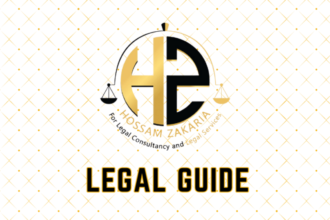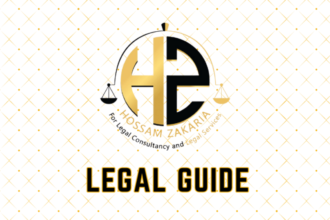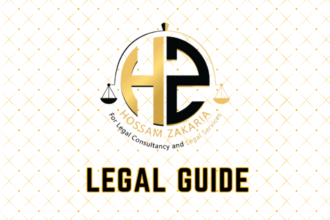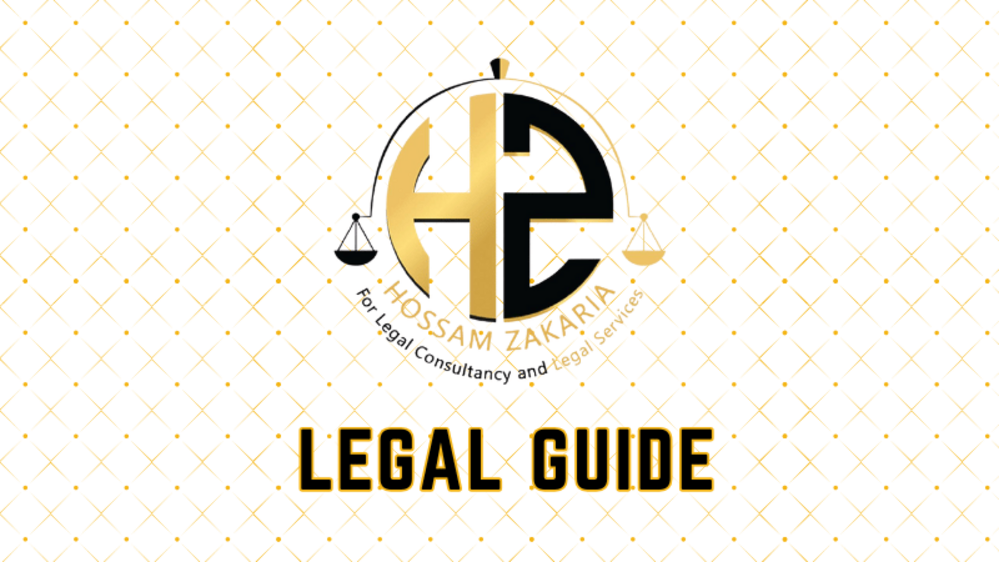Introduction: Understanding the Crossroads of UAE and Saudi FinTech Regulation
The rapid advancement of digital finance across the GCC brings with it both exciting opportunities and complex legal challenges. Saudi Arabia’s recent regulatory strides—in particular, those governing crowdfunding and fintech licensing—present potential new avenues for innovation, investment, and regional business partnerships. However, for UAE businesses and professionals eyeing expansion into Saudi markets or seeking to collaborate with Saudi fintech entities, understanding the shifting legal landscape is crucial.
This article offers a comprehensive analysis of the updated Saudi legal framework for crowdfunding and fintech licensing, highlighting its practical implications for UAE stakeholders. By drawing comparisons with UAE regulatory frameworks, discussing real-world compliance challenges, and outlining actionable strategies, our aim is to equip clients, executives, compliance officers, and legal practitioners with the depth of insight needed to confidently navigate emerging opportunities—and risks—in the Gulf’s digital finance sector.
Table of Contents
- Regulatory Overview: FinTech and Crowdfunding in Saudi Arabia
- Key Provisions of the Saudi Crowdfunding and FinTech Laws
- Comparative Analysis: UAE and Saudi FinTech Regulatory Frameworks
- Practical Implications for UAE Stakeholders
- Risks of Non-Compliance and Essential Compliance Strategies
- Case Studies and Hypothetical Scenarios
- Best Practice Recommendations for UAE Businesses
- Conclusion: The Way Forward for UAE-Saudi FinTech Collaboration
Regulatory Overview: FinTech and Crowdfunding in Saudi Arabia
The Emergence of FinTech Regulation in Saudi Arabia
Driven by ambitious initiatives such as Vision 2030 and the National Financial Sector Development Program, Saudi Arabia has positioned itself at the front lines of fintech adoption. The Saudi Central Bank (SAMA) and the Capital Market Authority (CMA) are the primary regulatory bodies overseeing this transformation. Over the past five years, both entities have introduced frameworks designed to regulate digital financial services, with a particular focus on new funding models like crowdfunding.
Notably, CMA’s FinTech ExPermit Framework (2020) and subsequent Crowdfunding Platform Regulations (last updated in 2023) have laid the statutory foundation for licensing, operation, and supervision of equity and debt crowdfunding platforms.
Context and Relevance for UAE Stakeholders
Many UAE enterprises and investors are exploring cross-border collaborations and investments with Saudi fintech entities. Moreover, several UAE-based fintech innovators wish to offer products or tap into the Saudi fundraising ecosystem. For these goals to be achieved lawfully, an understanding of the regulatory environment—and its differences relative to the UAE—is essential. Misunderstanding or underestimating these legal frameworks can expose parties to penalties, reputational damage, or even regulatory bans.
Key Provisions of the Saudi Crowdfunding and FinTech Laws
Crowdfunding Regulatory Highlights (CMA’s Updated Rules, 2023)
The chief features of Saudi crowdfunding regulations involve:
- Licensing and Supervision: All crowdfunding platforms must obtain an operating license from the Capital Market Authority. Unlicensed operation is strictly prohibited and subject to heavy penalties.
- Capital Requirements: Platforms must meet minimum paid-in capital standards (currently SAR 5 million for equity platforms).
- Corporate Governance: Rigorous board and management standards are imposed, including mandatory compliance officers and robust internal controls.
- Project Vetting and Due Diligence: Platforms have a statutory duty to undertake due diligence on fundraisers. This includes KYC (Know Your Customer), AML (Anti-Money Laundering), and project feasibility checks.
- Disclosure and Investor Protection: Projects listed must publish detailed prospectuses. There are strict rules regarding marketing, risk warning, and limits on how much individual investors can contribute.
- Periodic Reporting: Licensed firms must file quarterly and annual reports with the CMA, and disclose any material events.
- Real Estate Crowdfunding: Additional restrictions apply to real estate crowdfunding platforms, including asset ring-fencing and escrow arrangements.
FinTech Licensing Requirements (SAMA and CMA)
Saudi’s fintech licensing regime is structured around an Innovation Lab (sandbox) and full licensing:
- Innovation Lab: Start-ups and new entrants can operate temporarily under reduced requirements while proving concepts, provided they register with either SAMA or CMA.
- Full License: Post-sandbox, entrants must comply with comprehensive capital, staffing, technology, and compliance audit mandates. Cybersecurity, data privacy, and consumer protection receive priority treatment in license renewal and ongoing operation.
Official References and Enforcement
The relevant frameworks are detailed in official publications such as CMA FinTech ExPermit Instructions and SAMA FinTech Licensing Guidelines. Regulatory oversight is robust and enforcement actions have increased since 2021, underscoring the seriousness of compliance.
Comparative Analysis: UAE and Saudi FinTech Regulatory Frameworks
Saudi and UAE Crowdfunding/FinTech Laws: Side-by-Side
It is instructive to compare the Saudi approach with that of the UAE, where the UAE Central Bank, Securities and Commodities Authority (SCA), and local free zone authorities (ADGM, DIFC) each maintain their own regulatory regimes. Below, a summary table illustrates salient similarities and distinctions between the two jurisdictions.
| Aspect | Saudi Arabia (CMA/SAMA) | UAE (SCA/CBUAE/DFSA/FSRA) |
|---|---|---|
| Regulatory Authority | CMA/SAMA | SCA (onshore), ADGM (FSRA), DIFC (DFSA), CBUAE (Central Bank) |
| Licensing Category | Separate licenses for equity, debt, real estate | Separate plus distinct Free Zone frameworks |
| Initial Capital Requirement | SAR 5 million (equity) minimum | Varies: AED 1–2.5 million (depending on platform/free zone) |
| Sandbox/Innovation Lab | Active, run by SAMA/CMA | Innovative Testing Licence (ITL), DFSA Innovation Testing Licence, FSRA RegLab |
| KYC/AML | Mandatory, aligned with FATF and Saudi Anti-Money Laundering Law | Mandatory, Federal Decree-Law No. (20) of 2018 on AML, also SCA/DFSA/FSRA rules |
| Investor Protection | Strict contribution caps, risk warnings, prospectus requirement | Disclosure-based, risk warnings, maximum investment limits |
| Data Protection | KSA Cloud Computing Regulatory Framework, SAMA Cybersecurity Framework | UAE Federal Decree-Law No. 45 of 2021 on Personal Data Protection, SCA rules |
| Penalties for Violation | Fines up to SAR 2 million; business license revocation; criminal referral possible | Fines ranging AED 100,000+, regulatory exclusion, criminal sanctions |
Key Differences and Considerations
- Granularity: The UAE’s regime is more fragmented geographically (onshore vs. free zones), while Saudi offers a unified national regime.
- Capital & Licensing: Saudi capital requirements are generally higher, and regulatory scrutiny on licensing is intensive.
- Sandbox Access: Both jurisdictions encourage innovation, but the processes and durations for sandbox participation differ.
- Data Protection: The UAE has more recent and prescriptive data privacy regulations; Saudi relies on sectoral frameworks.
Practical Implications for UAE Stakeholders
1. Market Entry and Cross-Border Partnerships
Licensing Prerequisite: UAE-based fintechs seeking Saudi entry must either obtain Saudi licenses or partner with already-licensed local platforms. Acting as a technology provider or minority investor—without engaging in regulated activity—may be a lawful alternative but requires in-depth structuring.
2. Due Diligence and Regulatory Alignment
Comprehensive due diligence is required to ensure prospective partners in Saudi Arabia are not only licensed but also in good standing with CMA/SAMA. Saudi regulators may require documentation from UAE authorities as part of the application process.
3. Cross-Border Data Handling
Transferring or accessing Saudi customer data from the UAE requires strict compliance with both Saudi data localization mandates and the UAE’s Federal Decree-Law No. 45 of 2021 on Personal Data Protection. In some cases, cross-border data processing is contingent on bilateral MoUs or regulator pre-approval.
4. Contractual and Structuring Issues
Contracts between UAE and Saudi entities must expressly allocate liability for regulatory compliance, potential penalties, data breach risks, and investor claims. Standard provisions in technology and service agreements require careful adaptation to local law.
Risks of Non-Compliance and Essential Compliance Strategies
Common Risks for UAE Companies Entering the Saudi FinTech Space
- Unlicensed Operation: Marketing or facilitating fundraising without a CMA license can lead to regulatory investigation, penalties, and blacklisting from future market access.
- AML Breaches: Platform failures in completing robust KYC can result in criminal liability, reflecting Saudi Arabia’s aggressive anti-money laundering posture.
- Data Transfer Violations: Mismanaging cross-border data flows triggers privacy violations, subject to both Saudi and UAE regulatory sanction.
- Consumer Complaint Liability: Inadequate investor risk disclosure or project vetting opens the door to civil suits and regulatory fines.
- Organizational Reputational Damage: Public enforcement actions often make headlines, affecting business prospects throughout the GCC.
Compliance Strategies for UAE Stakeholders
| Task | Recommended Action |
|---|---|
| Licensing | Secure CMA/SAMA permits or confirm licensed Saudi partner status |
| Due Diligence | Vet all Saudi business partners for compliance and regulatory history |
| AML/KYC | Apply FATF-aligned KYC/AML procedures, coordinated with Saudi guidance |
| Data Management | Localize Saudi data; obtain necessary regulator approvals for cross-border transfers |
| Governance | Designate compliance officers with Saudi FinTech legal experience |
| Contracting | Custom-tailor legal agreements to address Saudi law and dispute resolution |
| Reporting & Audits | Implement systems for quarterly/annual regulatory reporting to Saudi authorities |
Case Studies and Hypothetical Scenarios
Case Study 1: UAE Start-Up Expanding to Saudi Market
Situation: A UAE-based fintech start-up wishes to launch an equity crowdfunding platform in Saudi Arabia. Their business model is compliant with SCA rules in the UAE and operates within the Abu Dhabi Global Market (ADGM).
Challenge: Their current license from UAE’s SCA and ADGM is not recognized in Saudi Arabia. They must pass through the Saudi sandbox, secure a full CMA license, increase local paid-in capital, and hire a compliance staff conversant in Saudi law.
Resolution: The start-up partners with a Saudi legal consultancy to navigate approval, localizes its Saudi data servers, and adapts its consumer-facing disclosures to Saudi regulatory templates—resulting in timely licensing and successful market entry.
Case Study 2: Cross-Border Investment Collaboration
Situation: An Abu Dhabi-based family office plans to invest in several Saudi crowdfunding projects via a licensed platform.
Challenge: Family office directors must ensure the platform’s licensing is current, verify project due diligence measures, and check whether remittance of investment proceeds to the UAE is permitted under both Saudi and UAE foreign exchange laws.
Resolution: The family office’s legal team seeks regulatory certifications and favorable tax and repatriation opinions, protecting the investment from compliance risk and blocked funds.
Case Study 3: Data Transfer and Privacy Pitfalls
Situation: A UAE-based technology firm hosts a fintech SaaS application used by Saudi clients. Customer data is stored on servers in the UAE.
Challenge: Saudi data localization rules prohibit transfer of financial or personal data outside Saudi Arabia without explicit regulator approval.
Resolution: The firm negotiates and implements a data localization solution via a Saudi-based cloud provider, amends contracts to reflect Saudi privacy obligations, and secures SAMA’s written approval for any essential cross-border processing.
Best Practice Recommendations for UAE Businesses
- Stay Updated on Regulatory Changes: Regularly consult updates from the Saudi CMA (cma.org.sa) and UAE Securities and Commodities Authority (sca.gov.ae).
- Deploy Multijurisdictional Legal Teams: Cross-border advisory teams with expertise in both Saudi and UAE fintech regulations are indispensable for risk mitigation.
- Implement Compliance Technology: Invest in RegTech solutions to automate KYC/AML, reporting, and risk management workflows across both jurisdictions.
- Localize Contracts and Disclosures: Adapt all legal documents for Saudi law—including dispute resolution clauses favoring local arbitration venues.
- Conduct Regular Training: Keep staff trained on evolving Saudi/UAE fintech law, cybersecurity obligations, AML risks, and cross-border compliance pitfalls.
- Engage with Regulatory Sandboxes: For innovative products/services, early application to Saudi/UAE regulatory sandboxes can ease full market entry and demonstrate compliance credibility.
Conclusion: The Way Forward for UAE-Saudi FinTech Collaboration
Saudi Arabia’s evolving legal architecture for crowdfunding and fintech is both an engine of opportunity and a source of compliance complexity for UAE organizations aspiring to regional leadership. With mounting regulatory standards, heightened enforcement, and a focus on cross-border data integrity, both risks and rewards are substantial. Success belongs to those who invest in in-depth legal and compliance preparation, embrace continuous regulatory monitoring, and cultivate robust cross-jurisdictional advisory relationships.
Going forward, the dynamic GCC regulatory landscape will reward proactive compliance and innovation—enabling the UAE’s fintech sector to thrive while avoiding pitfalls common to regional expansion. In this environment, keeping aligned with both UAE and Saudi updates—such as Federal Decree-Law No. 45 of 2021 on Data Protection and new Saudi CMA fintech updates—will be critical for sustained growth, trusted client relationships, and long-term legal security. As your trusted legal partner, we recommend scheduled legal reviews, joint compliance audits, and strategic engagement with authorities on both sides of the border.
For a tailored assessment or to discuss your prospective Saudi fintech project, our expert consultants are ready to provide actionable guidance rooted in the most current statutory and regulatory developments.
Visual Suggestion: A compliance process flowchart illustrating the Saudi fintech licensing process for UAE stakeholders, from preliminary due diligence through to full CMA licensing and post-launch reporting.



